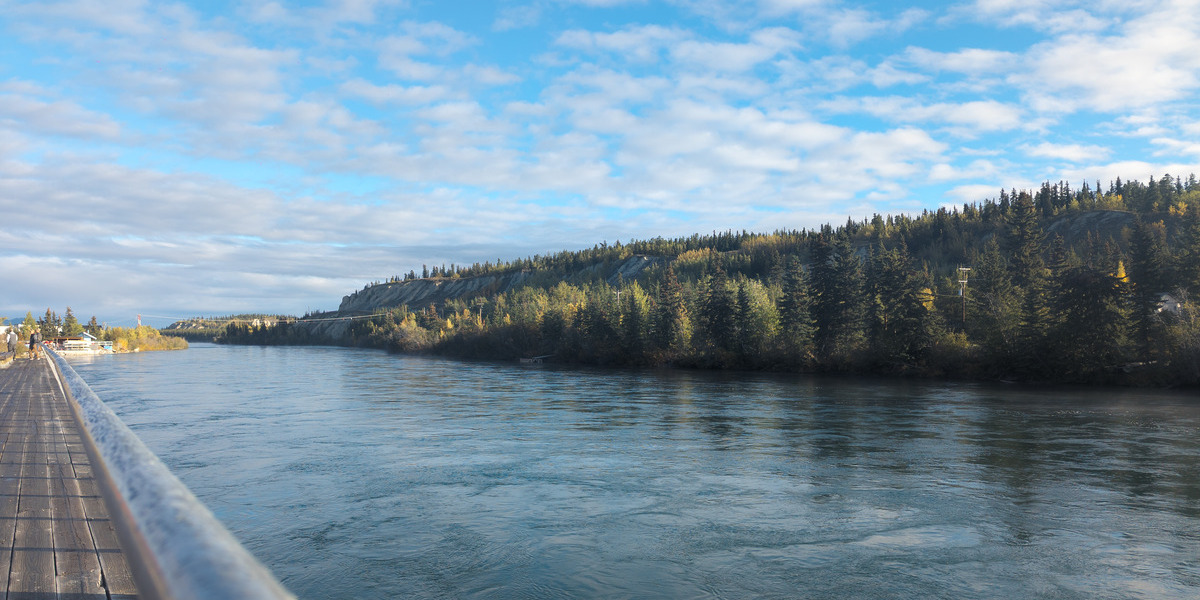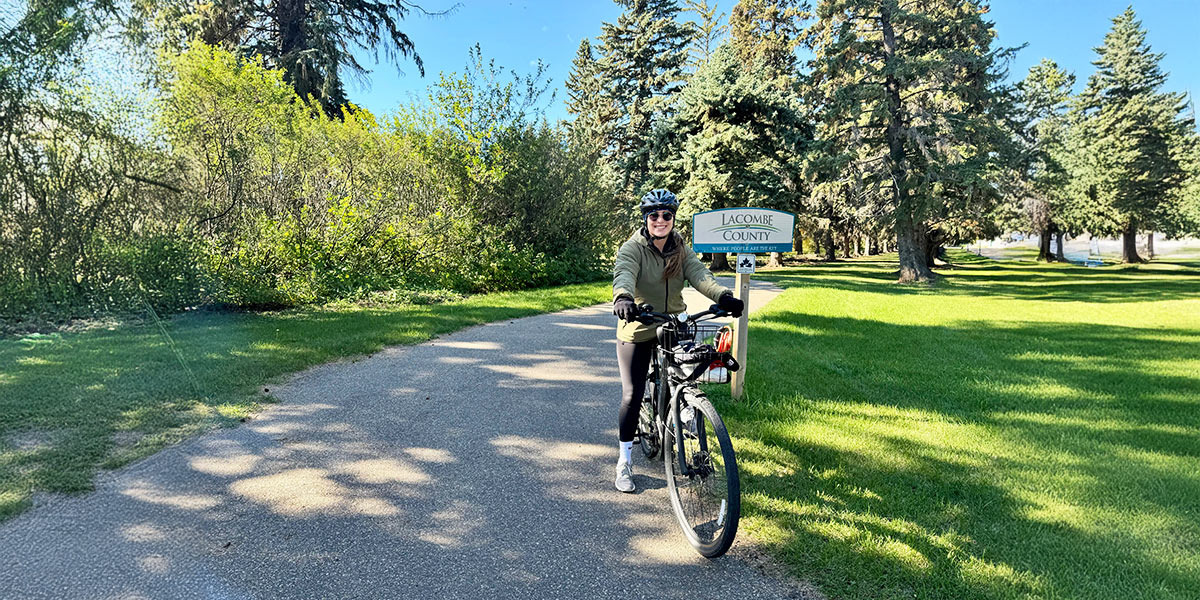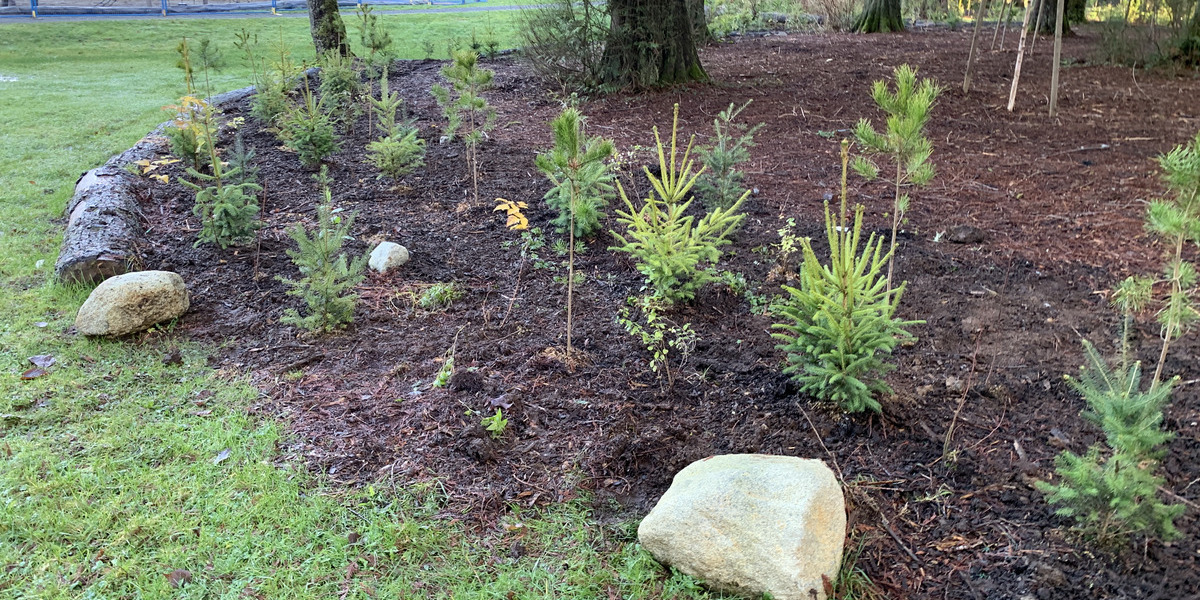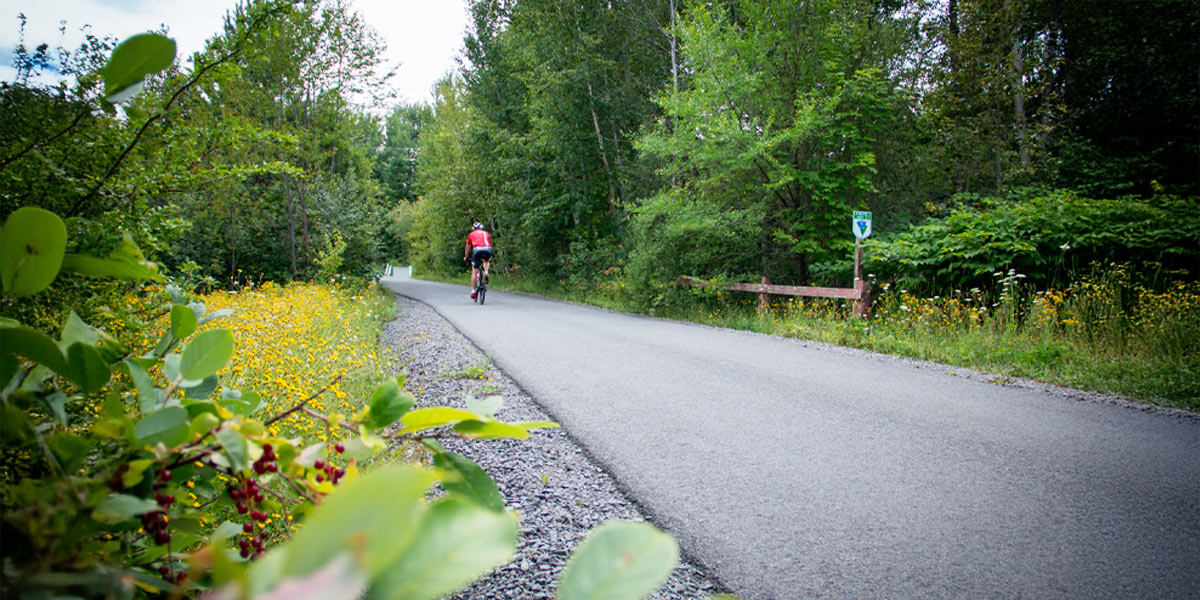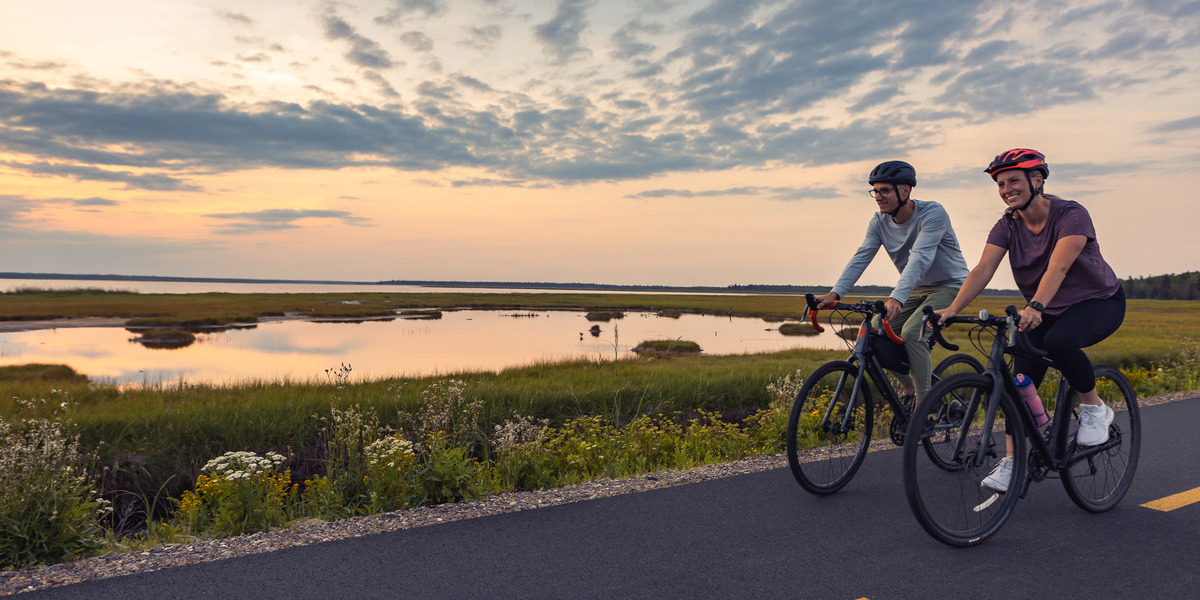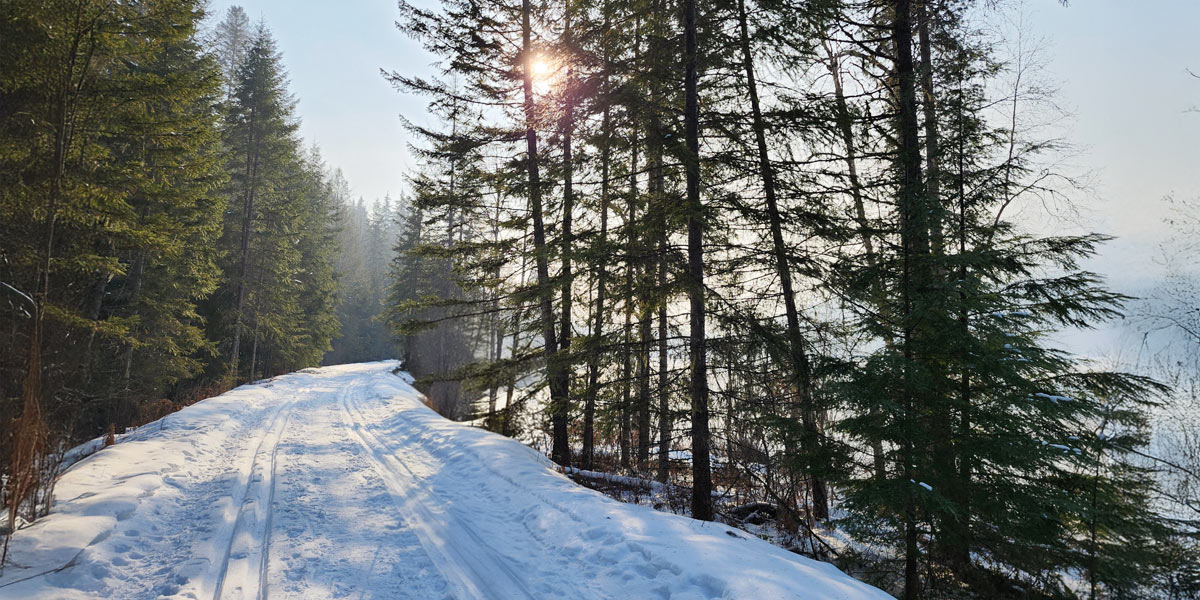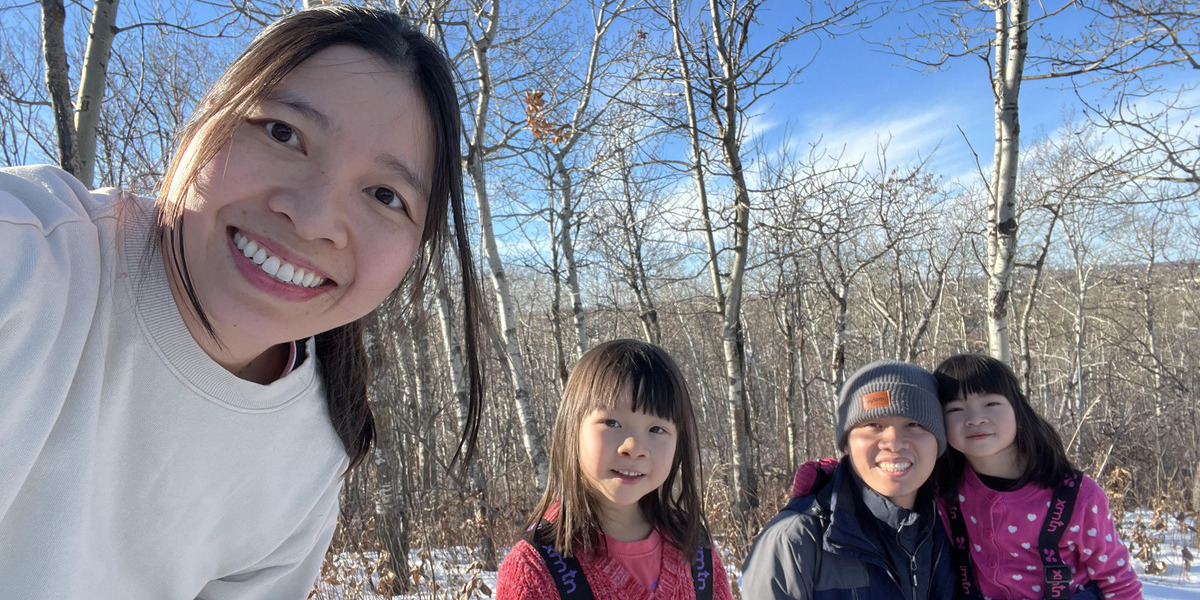How Trail Tourism and Indigenous Experiences Can Contribute to Reconciliation and a Resilient, Inclusive Trail Sector
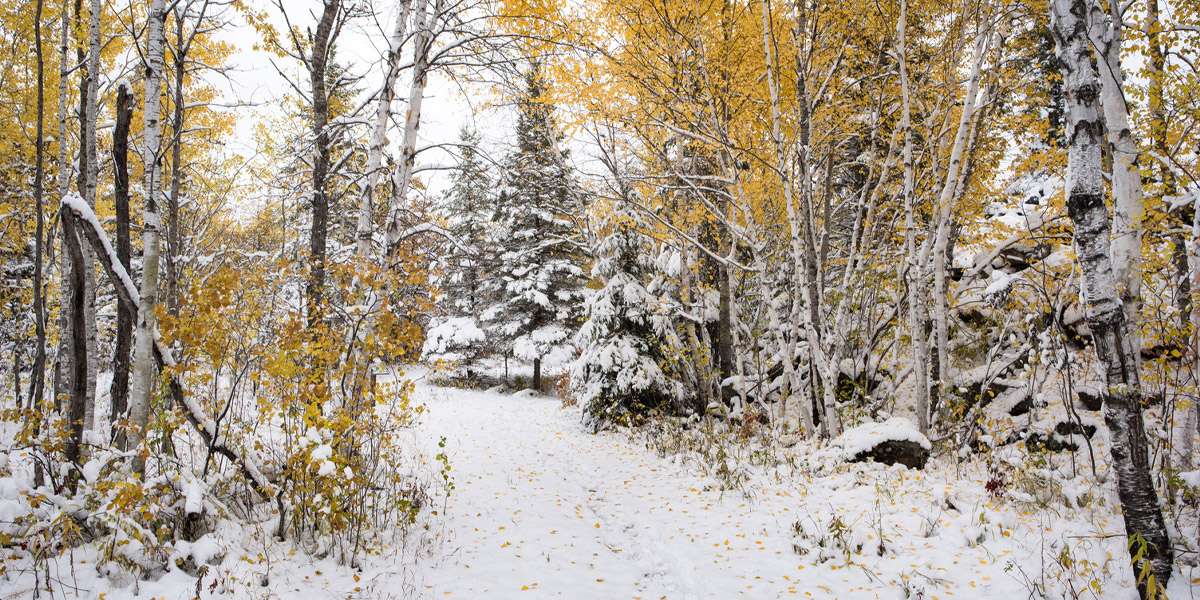
Both in Canada and globally, Indigenous-led organizations are developing trail tourism and nature experiences that support knowledge sharing and the fostering of a deep respect for the history, culture and the land. Through trail tourism and Indigenous experiences, these organizations support a resilient trail sector.
Values-based experiences — experiences based on one’s beliefs and ethics — are growing in popularity across the tourism and trail sectors. For Trans Canada Trail, this includes recognizing the traditional territories the Trail passes through; viewing trails as current and historical transport routes for Indigenous communities; and supporting Indigenous leadership in developing trail-related projects in these communities.
Trail tourism as a jumping-off point into Indigenous history and culture
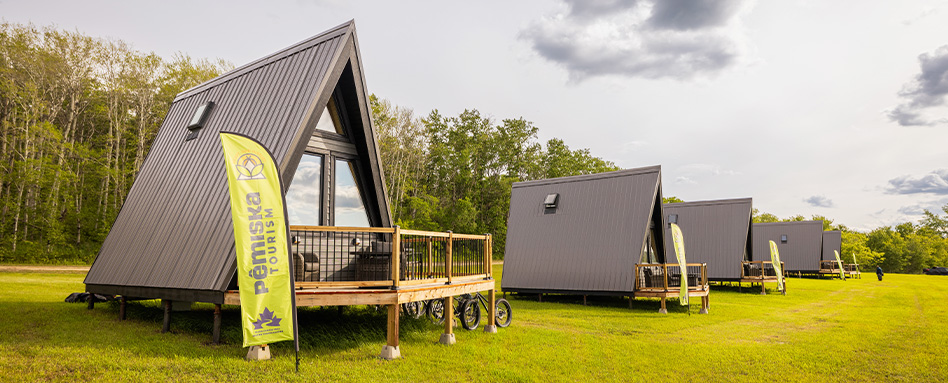
Based in Beardy’s and Okemasis Cree Nation, Pêmiska Tourism uses trails to provide Indigenous tourism opportunities for visitors to the area. Trail users will pass a monument marking the 1876 signing of Treaty 6 — covering the land between the Athabaska and South Saskatchewan rivers. Also found on the trail: a National Historic Site marking the Battle of Duck Lake in 1885, the first in a series of battles in what is now known as the North-West Resistance between the Métis People and Canadian government forces.
Pêmiska Tourism offers guided tours, cultural experiences, adventures and tipi lodges for overnight stays. The organization says it was developed “based on our Nêhiyaw Nation’s desire to join what’s around with what’s within us creates inspiring and immersive opportunities to see, learn and grow.” They describe their relationship with visitors to their nation as follows: “Pêmiska is the Cree word meaning ‘come find it’ … we will invite visitors to come and find a connection to our people, our history and our land.”
Indigenous tourism experiences on and off the Trans Canada Trail
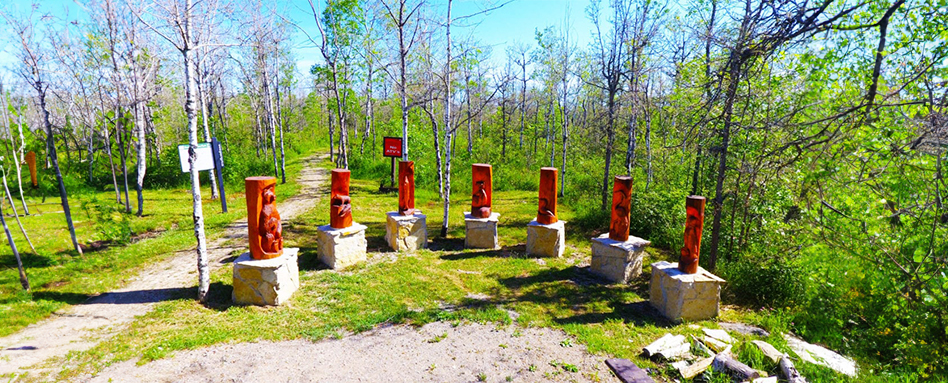
In Wiikwemkoong Unceded Territory, the Bebamikawe Memorial Trail – part of the Trans Canada Trail – offers a total of 14 kilometres of hiking and walking trails on the Niagara Escarpment. As part of the Odawa Interpretive Experience, trail users will walk alongside seven clan dodems as they ascend the Warriors Trail. The trail also features interpretive panels that outline one of the most diverse plant ecosystems in North America.
Wiikwemkoong Tourism also offers an outdoor culinary experience along the trail; as well as guided hikes, paddling tours and cultural tours about the history of the region.
Kevin Eshkawkogan from Indigenous Tourism Ontario describes the impact of Indigenous tourism experiences as follows: “Indigenous tourism experiences like the ones delivered by Wikwemikong Tourism on trails like the Bebamikawe Memorial Trail are amazingly educational on many fronts. Anyone who participates in these types of experiences will walk away with a newfound or enhanced respect for Indigenous culture and Shkagamik-Kwe (Mother Earth).”
Values-based experiences and building engaged, resilient communities
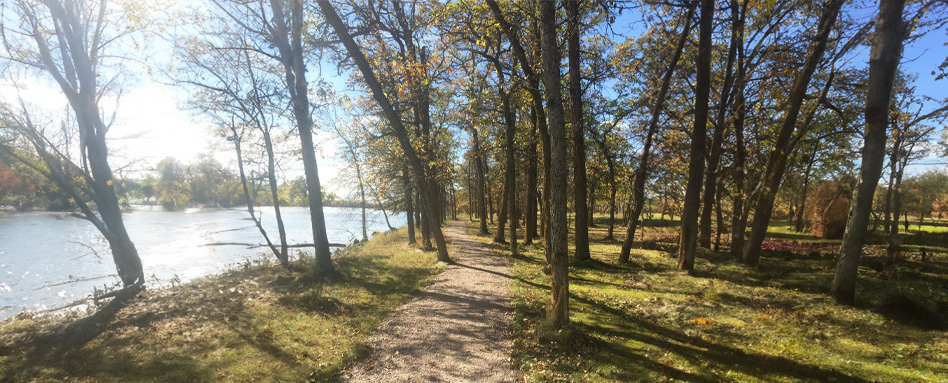
In addition to being the Managing Director of TRC Tourism, Kylie Ruwhiu-Karawana is the owner of an award-winning whanau (family) tourism business in Aotearoa, New Zealand — Horizon Tours — a business built around an extended, intergenerational family group. As an Indigenous businesswoman, she incorporates the Maori values of Manaakitanga, Kaitiakitanga and Kotahitanga into her work, earning her recognition as the Westpac Maori Business of the Year in 2020.
Kylie describes her passion for values-based tourism and Indigenous experiences:
“For me, values-based tourism is not just a business model; it’s a commitment to honouring our ancestors, protecting our lands and sharing our stories with the world. By embracing our Maori values of Manaakitanga (hospitality), Kaitiakitanga (guardianship) and Kotahitanga (unity), we create experiences that are deeply rooted in our culture and resonate on a personal level with our visitors. It’s about building meaningful connections and ensuring that tourism contributes positively to our communities and future generations.”
This approach underscores the growing importance of integrating Indigenous perspectives and leadership in trail and tourism sectors, fostering connections that are not only sustainable, but also deeply meaningful.
Adrian Alphonso, member of Waywayseecappo First Nation, is a volunteer on the board of Trails Manitoba. He has designed an Indigenous perspective cycling program on Treaty One Territory to honour Truth and Reconciliation.
Adrian is an experiential educator and Truth and Reconciliation facilitator, and he also has extensive experience with Indigenous tourism. He says that he often combines those three filters through experience and knowledge to talk about trails as reconciliation.
Be sure to catch two related sessions at the upcoming World Trails Conference:
“The Role of Trails in Reconciliation and Resilient Communities,” taking place October 1 at 3:30pm.
“Trail and Tourism: Reconciliation in Action,” taking place October 2 at 9am.
Read more about Trans Canada Trail’s commitment to Indigenous reconciliation.



